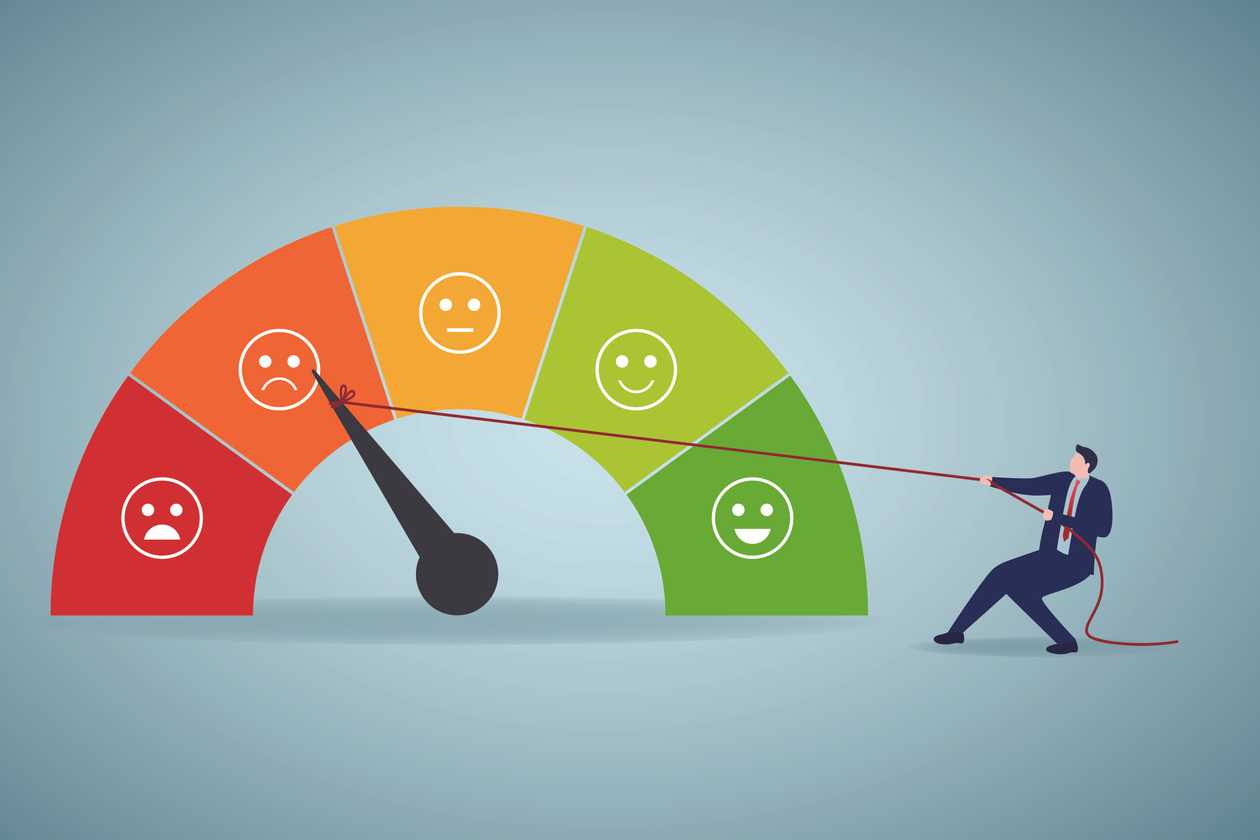Home>Finance>How Does Paying Off A Car Loan Affect Your Credit


Finance
How Does Paying Off A Car Loan Affect Your Credit
Published: January 8, 2024
See how paying off a car loan can impact your credit score. Learn about the financial implications and benefits of settling your auto loan.
(Many of the links in this article redirect to a specific reviewed product. Your purchase of these products through affiliate links helps to generate commission for LiveWell, at no extra cost. Learn more)
Table of Contents
Introduction
A car loan is a common form of financing that many people utilize to purchase a vehicle. It allows individuals to spread out the cost of the vehicle over a predetermined period of time, making it more affordable than paying the full amount upfront. However, when it comes to managing finances, one question that often arises is how paying off a car loan affects your credit.
In this article, we will delve into the relationship between paying off a car loan and your credit score. We will explore the factors that influence credit scores, the potential impact of paying off a car loan on your credit, and other important factors to consider.
Understanding how paying off a car loan affects your credit is crucial because your credit score plays a vital role in your financial health. Lenders use this score to determine your creditworthiness when you apply for loans, credit cards, or even when renting an apartment. It also affects the interest rates you can obtain on future loans, which can significantly impact your overall financial situation.
So, whether you’re close to paying off your car loan or considering whether to accelerate the repayment process, let’s explore the potential effects on your credit score.
Understanding Car Loans
A car loan is a type of installment loan that allows individuals to finance the purchase of a vehicle. It typically involves borrowing a specific amount of money from a lender, which is then repaid over a fixed period of time, usually with interest. Understanding the basic components of a car loan can help provide insight into how it can impact your credit.
There are several key elements to consider when understanding car loans:
- Principal: This refers to the amount of money you borrow to purchase the vehicle. It is the total price of the car minus any down payment or trade-in value.
- Interest Rate: The interest rate is the cost of borrowing the money and is expressed as a percentage. It is determined by various factors, such as your credit score, the length of the loan term, and market conditions.
- Loan Term: The loan term refers to the length of time you have to repay the borrowed amount. Common loan terms for car loans range from 36 to 72 months, but they can vary depending on the lender and your financial situation.
- Monthly Payment: This is the amount you are required to pay each month to repay the loan. It includes both the principal and the accrued interest.
When you first take out a car loan, your credit score will often be a significant factor in determining the interest rate and terms you are offered. A higher credit score typically results in more favorable loan terms, including lower interest rates and longer repayment periods.
Now that we have a basic understanding of car loans, let’s explore how your credit score is calculated, as this is crucial to understanding the impact of paying off a car loan on your credit.
How Credit Scores are Calculated
Your credit score is a numerical representation of your creditworthiness and is used by lenders to assess your likelihood of repaying debt. There are several credit scoring models, with the FICO® scoring model being the most widely used. While the exact calculation formula is proprietary, understanding the key factors that influence your credit score can provide insights into how paying off a car loan can impact it.
The FICO® scoring model takes into account five main factors:
- Payment History (35%): This is the most significant factor in your credit score calculation. It looks at your history of on-time payments, late payments, and any defaults or bankruptcies. Making consistent, timely payments on your car loan can have a positive impact on your credit score.
- Amounts Owed (30%): This factor considers the total amount of debt you have compared to your overall credit limit. It looks at your credit utilization ratio, which is the percentage of available credit that you are currently using. Paying off a car loan can reduce your overall debt load and potentially improve your credit utilization ratio.
- Length of Credit History (15%): This factor examines the length of time you have been using credit. Having a longer credit history, which may include successfully repaying a car loan, can positively influence your credit score.
- New Credit (10%): This factor considers any new credit accounts you have opened or applied for recently. Paying off a car loan does not directly impact this factor but may influence future credit decisions and inquiries.
- Credit Mix (10%): This factor looks at the types of credit you have, such as credit cards, mortgages, and installment loans. Having a diverse mix of credit types, including a successfully repaid car loan, can be beneficial for your credit score.
It’s important to note that each individual’s credit profile is unique, and the specific impact of paying off a car loan on credit scores can vary. Factors such as the length of credit history, overall credit utilization, and payment history all play a role in determining how paying off a car loan will affect your score.
Now that we have a better understanding of how credit scores are calculated, let’s explore the potential impact of paying off a car loan on your credit score.
Impact of Paying Off a Car Loan on Credit Score
Paying off a car loan can have both positive and negative effects on your credit score. Understanding these effects can help you make informed decisions about your finances and credit management.
Let’s explore the potential impacts:
- Positive Effects on Credit Score:
- Improvement in Payment History: Successfully paying off your car loan demonstrates a positive payment history, highlighting your ability to manage and repay debt responsibly. This can contribute to an increase in your credit score.
- Decrease in Amounts Owed: Paying off your car loan reduces your overall debt load. This can result in a lower credit utilization ratio, potentially improving your credit score.
- Enhancement of Credit Mix: Having successfully managed and repaid an installment loan like a car loan can diversify your credit mix and positively impact your credit score.
- Negative Effects on Credit Score:
- Temporary Dip in Credit Score: Immediately after paying off your car loan, you may experience a slight decrease in your credit score. This is because the closed account and the decrease in available credit can temporarily impact your credit utilization ratio.
- Shortened Credit History: If your car loan was one of your oldest credit accounts, paying it off may shorten your credit history. This can have a minor negative impact on your credit score.
It’s important to note that the individual impact on credit scores can vary based on other factors in your credit profile, such as your payment history, credit utilization, and length of credit history. However, paying off a car loan generally has more positive impacts than negative.
Now that we have explored the potential impact of paying off a car loan on your credit, let’s consider other important factors to keep in mind.
Positive Effects on Credit Score
Paying off a car loan can have several positive effects on your credit score. While the specific impact may vary based on individual circumstances, here are some of the common positive effects:
- Improved Payment History: Successfully paying off your car loan demonstrates a positive payment history. This shows lenders that you are responsible and reliable when it comes to repaying loans. A consistent history of on-time payments can boost your credit score.
- Reduction in Debt: Paying off your car loan reduces your overall debt load. This can lower your credit utilization ratio, which is the percentage of available credit you are currently using. A lower utilization ratio is generally viewed positively by lenders, improving your credit score.
- Enhanced Credit Mix: Having a diverse mix of credit accounts, including installment loans like car loans, can positively impact your credit score. Successfully repaying your car loan adds to the variety of your credit portfolio, demonstrating your ability to manage different types of debt.
- Lower Interest Costs: By paying off your car loan, you eliminate the interest charges over the remaining term of the loan. This can save you money in the long run and free up additional funds to allocate towards other financial goals or debts.
- Increased Available Income: Paying off a car loan reduces your monthly financial obligations. This can increase your available income, giving you more flexibility to manage your finances, save, or invest.
It’s important to note that these positive effects may not be instantaneous. It takes time for the credit reporting agencies to update your credit report, and the impact on your credit score may not be immediate. However, over time, paying off your car loan can contribute to an improved credit profile.
While paying off a car loan can have positive effects on your credit score, it’s essential to consider other factors and potential drawbacks. Let’s explore these in the next section.
Negative Effects on Credit Score
While paying off a car loan generally has more positive effects on your credit score, there are a few potential negative impacts to be aware of:
- Temporary Dip in Credit Score: Immediately after paying off your car loan, you may notice a slight decrease in your credit score. This is due to a couple of factors. First, closing the loan account reduces your overall available credit. Second, it may affect the average age of your credit accounts. These temporary effects can cause a minor dip in your credit score, but it is important to note that this impact is usually short-lived.
- Shortened Credit History: If your car loan was one of your oldest credit accounts, paying it off may shorten your credit history. The length of your credit history is a factor in your credit score calculation. A shorter credit history may have a minor negative impact on your credit score. However, if you have other well-established credit accounts, the impact of closing the car loan account may be minimal.
It is important to remember that these potential negative effects are often outweighed by the positive impacts of paying off a car loan. The benefits of improved payment history, reduced debt load, and enhanced credit mix generally have a more significant and long-lasting effect on your overall credit profile.
If you have other credit accounts, continue to manage them responsibly and make on-time payments. This will help mitigate any negative effects and maintain a healthy credit score.
Now that we have explored the potential positive and negative effects of paying off a car loan on your credit score, let’s consider some other factors to keep in mind.
Other Factors to Consider
While paying off a car loan can have both positive and negative effects on your credit score, there are other important factors to consider when evaluating the impact on your overall financial situation:
- Overall Credit Mix: While paying off a car loan can positively impact your credit mix, it’s important to maintain a healthy variety of credit accounts. Having a mix of credit cards, mortgages, and installment loans can demonstrate your ability to manage different types of debt.
- Future Credit Needs: Consider your future financial goals and whether you may need to access credit in the near future. If you have plans to apply for a mortgage, open new credit cards, or obtain another type of loan, it’s important to weigh the potential impact of paying off your car loan on these future credit applications.
- Financial Stability: Assess your overall financial stability before paying off your car loan. If paying off the loan will deplete your emergency savings or leave you with limited funds for other essential expenses, it may be more prudent to prioritize financial stability over the potential impact on your credit score.
- Long-Term Financial Goals: Consider your long-term financial goals and how paying off your car loan fits into those plans. If you prioritize becoming debt-free and reducing monthly financial obligations, paying off the car loan may align with your goals, even if there is a temporary dip in your credit score.
- Personal Satisfaction: Lastly, consider the personal satisfaction and peace of mind that comes with paying off a car loan. Eliminating a debt can provide a sense of accomplishment and financial freedom, which can be valuable regardless of the impact on your credit score.
It’s essential to evaluate the potential impact of paying off a car loan on your credit score alongside these other factors. Remember, a good credit score is important, but it’s just one piece of your overall financial well-being.
Now that we’ve discussed the potential effects of paying off a car loan on your credit score and considered other factors, let’s wrap up the article.
Conclusion
Paying off a car loan can have various effects on your credit score and overall financial situation. While there may be a temporary dip in your credit score and a potential shortening of your credit history, the long-term positive impacts generally outweigh the negative effects.
Successfully paying off your car loan improves your payment history, reduces your debt load, and enhances your credit mix. These factors can lead to an improved credit score, which is essential for future financial endeavors.
However, it’s important to consider other factors such as your overall credit mix, future credit needs, financial stability, and long-term financial goals. These factors should guide your decision-making process when deciding whether to pay off your car loan.
Ultimately, paying off your car loan not only brings potential credit benefits but also provides personal satisfaction and financial freedom. While maintaining a good credit score is important, it’s crucial to prioritize your overall financial well-being and align your actions with your long-term financial goals.
Remember to review your individual circumstances, consult with a financial advisor if necessary, and make an informed decision that considers both the short-term and long-term impacts on your credit and financial situation.
By understanding the relationship between paying off a car loan and your credit, you can proactively manage your finances and set yourself up for a solid foundation of financial stability and success.














